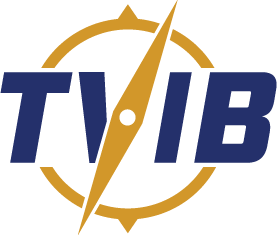REPOSTED FROM THE USCG MARITIME COMMONS
10/11/2018: Coast Guard announces new Maritime Commerce Strategic Outlook
From the desk of Rear Adm. John P. Nadeau, Assistant Commandant for Prevention Policy
A resilient Marine Transportation System is imperative to our nation’s economic prosperity and national security. For more than 228 years, the Coast Guard has facilitated maritime security to promote and safeguard American commerce. Maritime commerce accounts for $4.6 trillion in annual economic activity and 90 percent of U.S. imports and exports occur by ship. By 2025, we expect the demands for waterborne commerce, energy, food, resources, and recreation to double.
Today in the Coast Guard’s 8th District we announced the Maritime Commerce Strategic Outlook, which outlines the Commandant’s long term vision to support and grow maritime commerce in the United States. We chose the 8th District because it is at the center of our operations in the Western Rivers, which are critical maritime arteries that fuel commerce and connect our nation’s Heartland to consumers around the globe.
In my role as assistant commandant for prevention policy, my staff and I are actively engaged in the implementation of three major lines of effort: facilitating lawful trade and travel on secure waterways; modernizing aid to navigation and mariner information systems, and transforming the workforce capacity and partnerships.
1. Facilitation of lawful trade and travel on secure waterways
Any disruptions to the Marine Transportation System, whether man-made or natural, will have a cascading and potentially devastating effect on the domestic and global supply chain and America’s economy and national security. As the lead federal agency protecting our MTS and the primary regulator of the maritime shipping industry, the Coast Guard advances American prosperity by securing ports and waterways and ensuring vessel safety. We will achieve this by managing risks to critical infrastructure; through efficient delivery of Coast Guard services; supporting uniform and consistent vessel and facility standards; and promoting resiliency and unity of effort among all MTS stakeholders.
2. Modernization of aids to navigation and other mariner information systems
America must be competitive as a global trading partner, and the Coast Guard will drive modernization of IT networks and applications that enable us to assess, monitor, and manage risk. The service will optimize traditional navigation systems as we build the next generation waterway management and aids to navigation systems. Further, we’ll seek to adapt regulatory frameworks, applications, and standards to accurately incorporate the implementation of emerging technologies that will transform maritime operations such as autonomous systems and new logistics platforms.
3. Transformation of workforce capacity and partnerships
The maritime operating environment is increasingly complex and the Coast Guard must transform its workforce and strengthen its partnerships with other enabling organizations to meet the increased demand on America’s waterways. We will leverage the capabilities of Third Party Organizations that conduct work on our behalf, while providing a robust oversight regime that monitors their performance and ensures compliance with required standards.
Although the Commandant’s long-term outlook was just published today, the Coast Guard, in cooperation with its many partners within the government and private sector, is already making strides toward achieving its goals:
• Staff in the 8th District have been working with the American Waterways Operators to review the floating aids to navigation system along the Western Rivers to identify hazards.
• Through the Truman-Hobbs Bridge Alteration Program, we’ve partnered with private sector to investigate bridges identified as unreasonably obstructive to navigation.
• We continually participate in global efforts to safeguard maritime activities through involvement with bodies such as the International Maritime Organization, the International Marine Aids to Navigation Association of Lighthouse Authorities, and the International Hydrographic Organization.
• We’ve begun the process to designate Shipping Safety Fairways off the entire Atlantic Coast, as informed through the recent Atlantic Coast Port Access Route Study.
• Through partnership with DHS, we’ve develop better analytical tools, data, and technologies to improve MTS resilience following an emergency.
• We’re improving our third party oversight program, including creation of a new Headquarters office solely focused on driving improvements necessary for robust oversight of third parties and delegated functions.
• We’ve developed more rigorous procedures and detailed policy for both third parties and Coast Guard marine inspectors, a substantial increase in auditor training to improve the proficiency of Coast Guard personnel, and established metrics and key performance indicators to monitor third party performance.
• We’ve made significant progress toward a single U.S. Supplement to the classification society rules and SOLAS.
The Coast Guard will use its unique law enforcement, intelligence, and regulatory authorities to grow and safeguard maritime commerce in the U.S., but the challenges facing our waterways require continued collaboration with private sector and government agency stakeholders at every level – local, state, national, and international. We look forward to working with our partners and stakeholders as we execute the lines of effort in the Maritime Commerce Strategic Outlook.

Click here to download the Maritime Commerce Strategic Outlook
Click here for the original post from the USCG Maritime Commons


